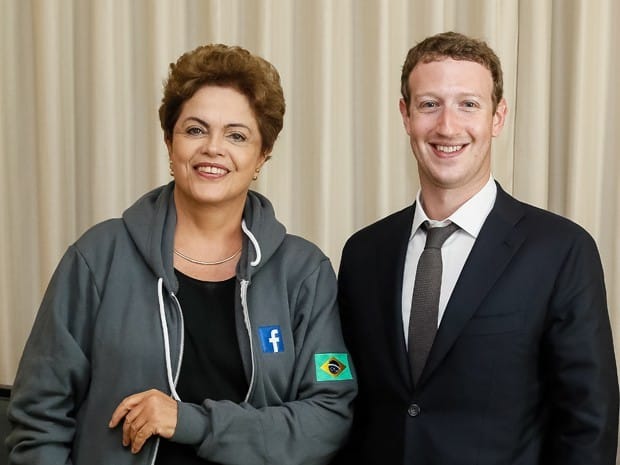Netmundial+10; an AdCo for Quad9

In 2014 the internet governance landscape featured zero-rated internet services, post-Snowden distrust in five-eyes governments' ability to steward the internet, and the IANA transition from US government to ICANN community control. Among these was an affirmation of global South leadership and that multistakeholder process and protocols thrive outside of institutional capture in the form of a process called NetMundial.
NetMundial+10 is a return to many issues in process and substance in the intervening 10 years:
- Net Neutrality is a story of success through failure. It remains a common sense regulation to protect consumers in the US, Brazil, EU and elsewhere.
- Private sector proved to be poor replacements to governments as internet stewards, leading to a focus on the NM+10 document defining process for internet governance equitably across stakeholders.
NM+10 iterated its process through hybrid participation and partial representation, in which most sectors were not strongly represented due to timing and travel constraints. I was grateful to those who stepped in ahead of and throughout the process to organise the technical community sector, of which I was a member. (Read more below the jump about the real reason I was in Sao Paulo.)
Read the NM+10 outcome document: https://netmundial.br/pdf/NETmundial10-MultistakeholderStatement-2024.pdf
Was this email forwarded to you? Subscribe!
This week in links
- Betty Lin-Fisher covers for USA Today the FCC's vote to restore net neutrality, in which I say "If net neutrality prevents profit-making off of preferential treatment and innovation in traffic shaping, then perhaps it follows that they would put efforts elsewhere, namely into maintenance and building out of the network. In any case, the latter has far greater benefits to consumers." https://www.usatoday.com/story/money/2024/04/25/fcc-net-neutrality-internet-speed-vote/73450877007/
- I read a statement to the UN from the steering committee of the Global Encryption Coalition on improvements to the "Global Digital Compact" that would make protections for encryption use more durable https://www.globalencryption.org/2024/04/global-encryption-coalition-gec-sc-contribution-to-the-ongoing-discussions-at-the-uns-global-digital-compact/
- My talk for Hackers on Planet Earth is featured in their initial announcement https://www.hope.net/talks.html
- Riana Pfefferkorn and co-authors develop solutions for improving the system for reporting child sex abuse material online https://www.lawfaremedia.org/article/challenges-in-the-online-child-safety-ecosystem
- Mastodon formed a nonprofit based in the US and announced a new board of directors https://blog.joinmastodon.org/2024/04/mastodon-forms-new-u.s.-non-profit
- Check out the emerging effort to bring end-to-end encryption to DMs in Activity Pub https://forum.summerofprotocols.com/t/sop-2024-pig-and-pog-grantees/1270
- India makes changes to voting regulations, trusting EVMs more than paper ballots. Read analysis from Pranesh Prakash https://pranesh.in/press/how-to-make-evms-hack-proof-and-elections-more-trustworthy.html
- Don Moynihan writes about his experiences with passport renewal and indicates perhaps why US Americans lack imagination and positive feelings towards “digital public infrastructure.” https://donmoynihan.substack.com/p/the-digital-tyranny-of-needing-an
- NGOs call for scrutiny over red flags in the renewal of EU-Israel data transfer agreement https://www.accessnow.org/press-release/eu-israel-data-transfer
Quad9 Announces Advisory Council to Consider Human Rights Impacts (read on Quad9.net)
On Sunday, April the 28th, the eve of the NetMundial+10 convergence in Sao Paulo, the recursive DNS resolver Quad9 launched an advisory council to tackle questions of human rights impacts, especially on privacy and equity for its global user base around the world. The Privacy, Equity, and Human Rights (PEHR) council will be made up of an array of experts in their fields, and we appreciate the diverse points of view their differing backgrounds provide.
Quad9 (also known as 9.9.9.9 after the IP address for its recursive DNS resolver) is a free, open, recursive DNS resolver with over 240 points of presence globally in more than 110 countries. Headquartered in Switzerland, Quad9 provides DNS services to at-risk communities with cybersecurity benefits and exceptionally high privacy guarantees. Every computer and device on the internet uses a DNS resolver as a first step in any transaction or site visit, and Quad9 offers an alternative to the sometimes less private and secure options offered by ISPs or mobile carriers.
The mission of Quad9 is to provide a safer and more robust Internet for everyone. The advisory council will provide autonomous and strategic recommendations to the organisation on issues, topics, and challenges including, but not limited to: information sharing; operations; communications; research; infrastructure; risk management; programming; and partnerships. The fiduciary Foundation Council, staff, and the newly formed PEHR council of Quad9 understand their responsibility as custodians of critical internet infrastructure, which is that Quad9 must support the public’s practical ability to exercise their human rights.
The advisory council will operate independently and will be initially chaired by Mallory Knodel of the Center for Democracy and Technology in Washington, DC. PEHR members include Bob Ochieng of ICANN in Kenya, Pablo Hinojosa of APNIC in Australia, Tara Tarakiyee of the Sovereign Tech Fund in Germany, Serge Droz a board member of FIRST, Lars Eggert former IETF chair and engineer at Mozilla, Seeta Peña Gangadharan at the London School of Economics and Political Science, Lai Yi Ohlsen of Measurement Lab in New York, Urvashi Aneja at the Digital Futures Lab in India, and Shane Kerr of IBM in Amsterdam. Members of the advisory council participate in a voluntary capacity, and represent themselves and not their respective employers or affiliated organisations.
“The establishment of this Privacy, Equity, and Human Rights (PEHR) advisory council is part of the duty of care that we assume in relation to the public’s rights of association, cultural and political participation, and private communication,” says Quad9 General Manager John Todd. “It is imperative for Quad9 to survey a broad cross-section of voices in the decision process of how we approach these important issues, and we hope that our experience and success with the PEHR council will be emulated by other organisations whose policies influence technical outcomes at scale.”
Chairing advisor Mallory Knodel says, “Quad9 operates in the public interest and to that end it is crucial to bring together community representatives to grapple with the hard questions posed by the shifting internet governance landscape on consequential decisions that impact people’s privacy and human rights.”
View this newsletter edition in a browser and grab the link for easy sharing.
